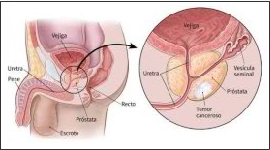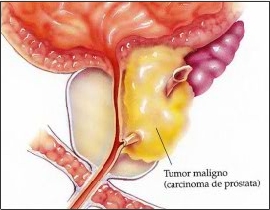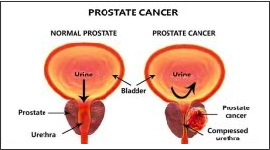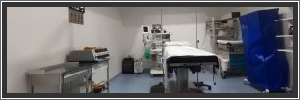Prostate cancer
Prostate cancer is a malignant tumor that sits in the prostate. It affects men over 45-50 years. CP evolves slowly and is not as lethal as other types of cancer. Cancer cells usually settle in the most peripheral part of the prostate. Generally elderly, who have not been diagnosed early with CP, can be diagnosed when they already have metastases.
|
|
|
|
|
|





